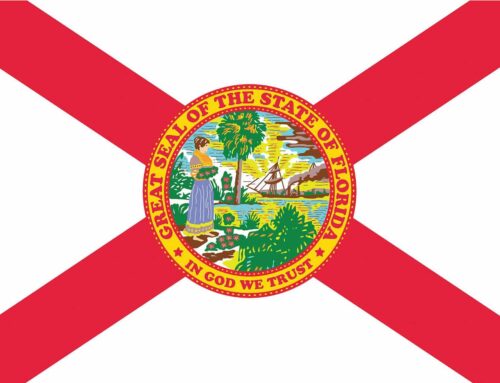Got a car but no title? You might be able to get your state to issue a new title by taking advantage of the Vermont Registration Loophole.
Here’s how it works:
The State of Vermont has an unusual set of car registration laws on the books. In Vermont, you don’t have to be a resident to legally register a car with the state. If the car is at least 15 years old, Vermont doesn’t issue a title. They just do registrations on those cars. Not titles. In Vermont, the registration on a 15+-year-old car itself constitutes proof of ownership. That is, the registration on these cars serves the same function as a title.
And you don’t even have to be present in Vermont to register your car. You can register your car in Vermont by mail using only a bill of sale.
This can be very useful for people elsewhere in the country. People often use the Vermont Registration Loophole to get their own (non-Vermont) state to issue a new title via the “Transfer of Title” method.
The Process
If you have a car at least 15 years old, you can register it in Vermont by mail, using a Vermont Form VD-119.
Once your registration is complete, Vermont will send you your vehicle tags and a stamped copy of your VD-119.
Bring that form in with a valid state ID in your state, and you can normally get your title transferred to a brand new title, issued by your home state.
This Vermont registration loophole has saved car, truck, bus, RV, and ATV owners untold time and hassle by streamlining the issuance of titles that would otherwise be very difficult to obtain due to the lack of paperwork.
This can easily happen to people who inherit a car from a deceased or incapacitated family member, for example. And loads of classic and collector car owners have been making use of the Vermont registration loophole for many years.
Is your car eligible?
To use the Vermont Registration Loophole, your car has to be eligible:
- It must be at least 15 years old.
- It must be properly equipped and in good mechanical condition. If the car’s in parts or missing an engine or transmission, you probably can’t use the Vermont Registration Loophole.
- You must have liability coverage on the vehicle when you register it in Vermont.
Who Should Consider Using the Vermont Registration Loophole?
Using the Vermont registration “loophole” can be very useful if you want or need to get your car or motorcycle street legal so you can drive it, but you’re missing some of the paperwork on it, such as a title.
Potential Tax Benefits of Vermont Vehicle Registration
Vermont, like Massachusetts, assesses sales tax on the low NADA book value. Normally, Vermont assesses a 6% sales tax on vehicle purchases (subject to a $500 purchase price minimum). However, non-Vermont-residents don’t have to pay the sales tax on cars they purchase in Vermont.
But be prepared – some states frown upon the practice, believing that some people use the Vermont registration loophole to evade paying sales tax on car purchases.
Also, you should be truthful about where you have the car marketed if you’re living in and garaging your car in Massachusetts, New Hampshire, or elsewhere out of state, you could get in trouble with your own state’s revenue officials if they find out.
But be prepared – some states frown upon the practice, believing that some people use the Vermont registration loophole to evade paying sales tax on car purchases.
For the best chance of success, and to minimize the likelihood of having your title application kicked back by your home state, it will help if the vehicle has never been registered in your home state, and that’s never been titled in your name. Otherwise, the VIN number may generate an alert for DMV workers, who may block the registration until you can provide more documentation.
Some states or county tax collectors have flagged all title requests using Vermont registration documents. Though in some cases, the policy is short-lived. Indiana, Ohio, and Pennsylvania have all been taking a close look at title requests based on Vermont registrations.
The technique is more likely to work if the vehicle was never titled in your state. If you attempt to use the Vermont Loophole with a vehicle with a VIN number that’s been previously titled in your state, the VIN will throw a flag, and your state may block the registration, requiring you to provide more documentation.
However, if you’re living in and garaging your car in Massachusetts, New Hampshire, or elsewhere out of state, you could get in trouble with your own state’s revenue officials if they find out.
Tips:
1.) Don’t drive in your state with out-of-state tags if you aren’t a Vermont resident. Yes, Vermont will send you a set of plates once you register your car with them. But that doesn’t mean it’s legal for you to drive around with them on your car. If you’re already a resident of another state, you will probably need to get your new state’s tags in order to be fully street legal. So complete the process in your state, rather than drive illegally with your out-of-state Vermont tags.
2.) Bring this Vermont Informational Bulletin with you to your DMV when you apply for a title. Don’t assume your local DMV drone will automatically know how to process a Vermont registration. Most don’t know that in Vermont, a registration is equivalent to a title. This bulletin will explain to your DMV clerk what they’re looking at when you present your VT-119 form, and how to properly process it.
3.) Obtain a VIN Verification. Vermont will require a VIN verification document, which you can get from an insurance company or from your local police department.
Do you have experience using the Vermont Registration Loophole to get a title on your vehicle? Or to (legally) reduce sales taxes on a vehicle you purchased? We’d love to hear about your experiences! Any good tips we didn’t mention here? Did your home DMV give you trouble?
See you on the road!
Steve “Mr. Insurance” Ludwig
For Further Reading
Form VT-119 – Vermont Vehicle Registration, Tax & Title Application
Jalopnik.com: My Bus Has Plates Because Vermont is Secretly America’s DMV
How To Insure a Car With a Salvage or Rebuilt Title
Should You Buy Your ATV in Montana to Save On Taxes?
Montana LLCs and Car Registration – Everything You Need to Know






